Publications
fp21 is building a new culture of foreign policy that uses evidence and robust analysis in decision-making processes, learns from its successes and failures, and continually feeds lessons back into the way it recruits, trains, and promotes a merit-based staff. Explore our publications below.

Raiding the Ivory Tower: How to Seek Academic Research Like an Expert
Thomas Leo Scherer, Lauren Van Metre, and Analise Schmidt: Smart policymakers know that foreign policy should be informed by the best available evidence. Too often, however, the policy process fails to seek evidence from academic research. This article offers tips to make the path easier by 1) searching better, 2) evaluating quality, and 3) creating systems to manage knowledge.
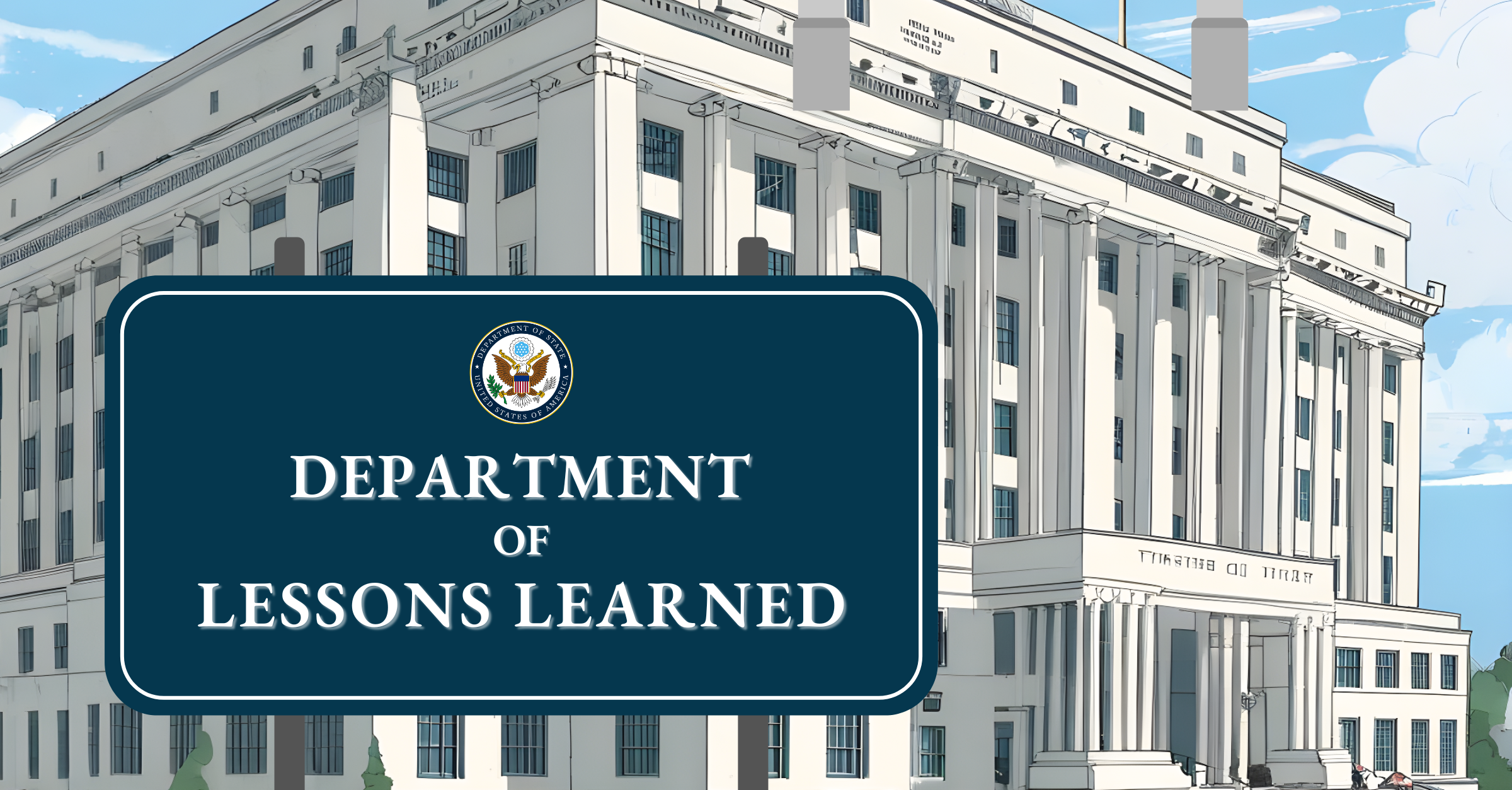
Making “Lessons Learned” Stick
Dan Spokojny - How many wars could be prevented, and how many lives saved, if only we could inject better knowledge into the bloodstream of policymaking process? Here are five observations based upon my study of lessons learned programs.
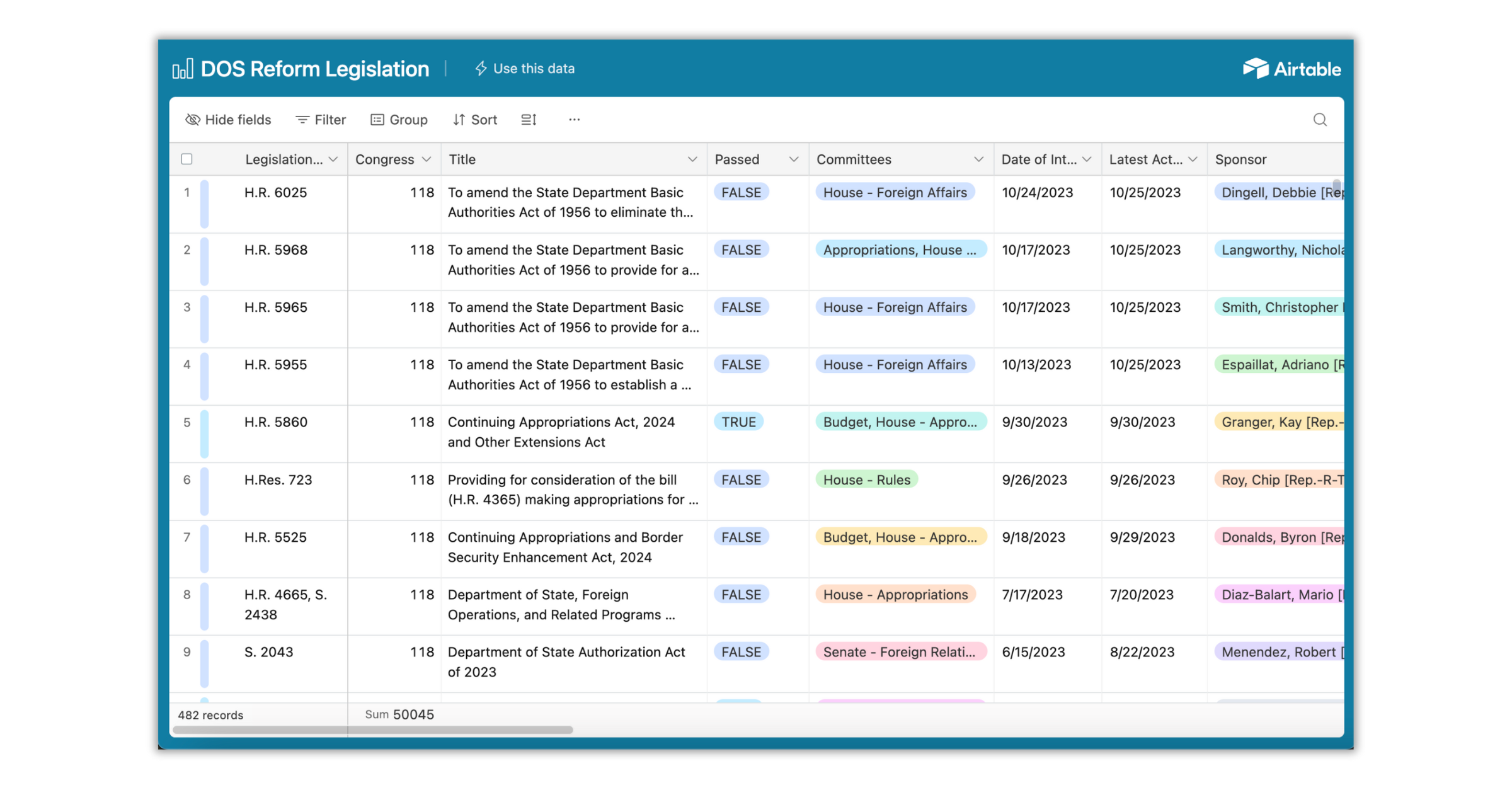
Legislating Diplomatic Reform: A Database of Bills
Ellice Huang and Sophia Brown-Heidenreich: Congress has shaped the legal authorities of the Department of State at regular intervals throughout American history, equipping American diplomacy to lead in the face of evolving international challenges. This database of foreign policy legislation to provide US foreign policy reform advocates with a comprehensive resource outlining the historical attempts of Congress to improve the State Department.
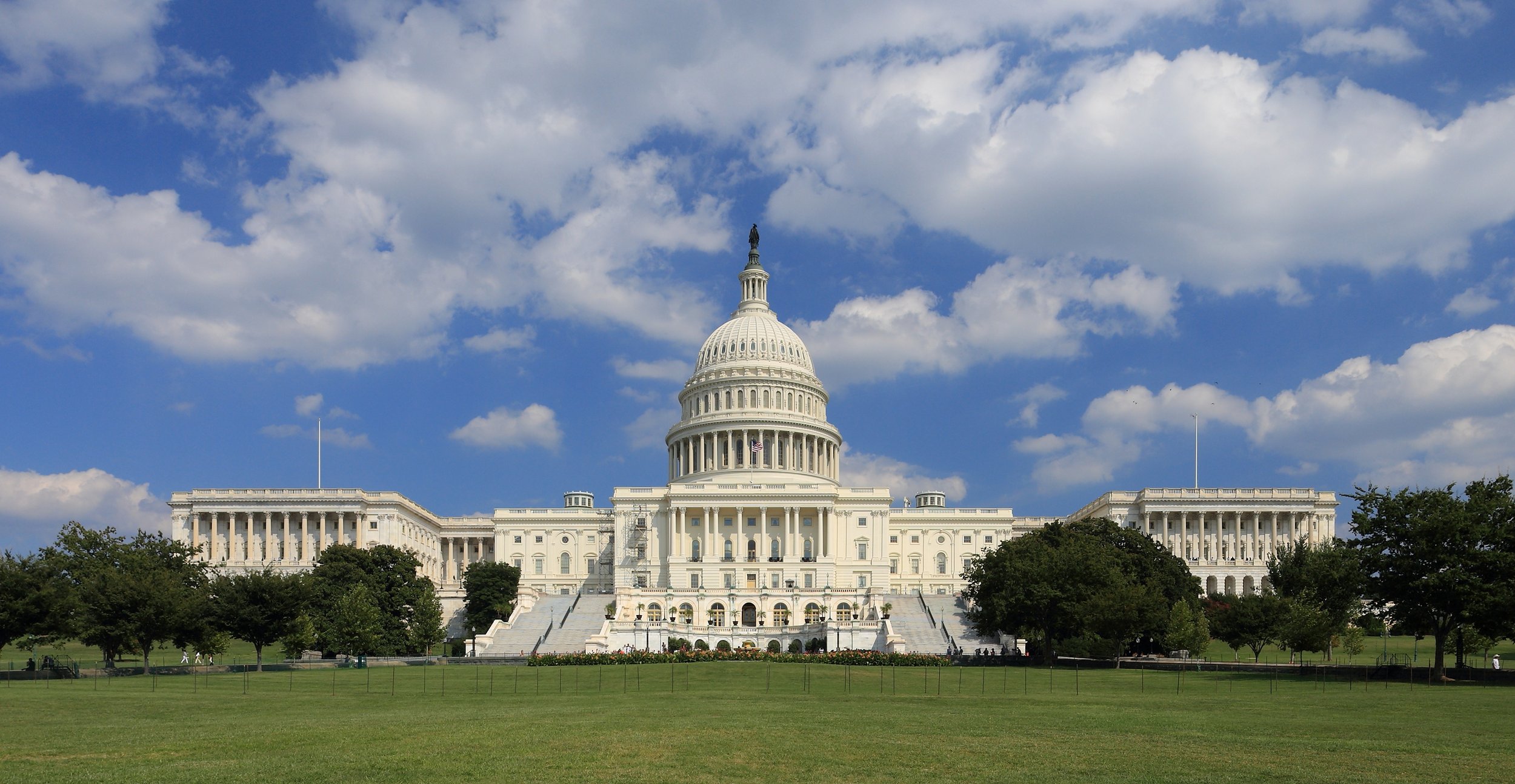
Congress Passes State Department Authorization for Third Year in a Row
Dan Spokojny: The Department of State Authorization Act of 2024 was passed by Congress and signed into law, marking the third year in a row diplomacy gets a facelift. Legislators took aim at many of the issues fp21 has prioritized in recent years, continuing to press the State Department to modernize in the face of a rapidly changing international environment.
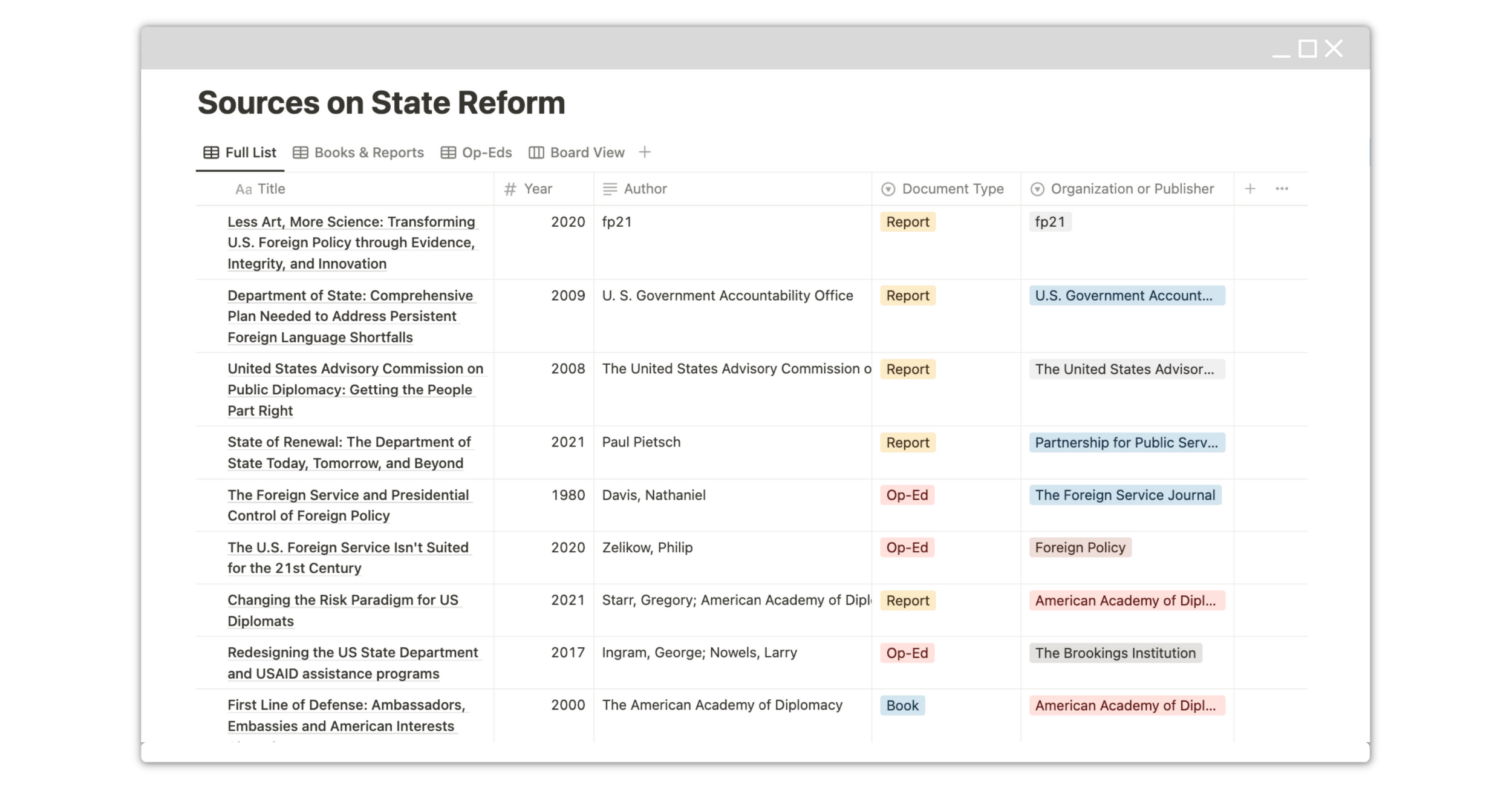
Learning From History: A Database of Prior Reform Proposals at State
Toby Weed: fp21 created this database of State Department reform recommendations as a resource for those working to reform US foreign policy process. Too many would-be reformers proceed without reviewing the large body of work on State Department reform that has accumulated from prior attempts. Any reforms need to be carefully researched and based on the best available evidence.
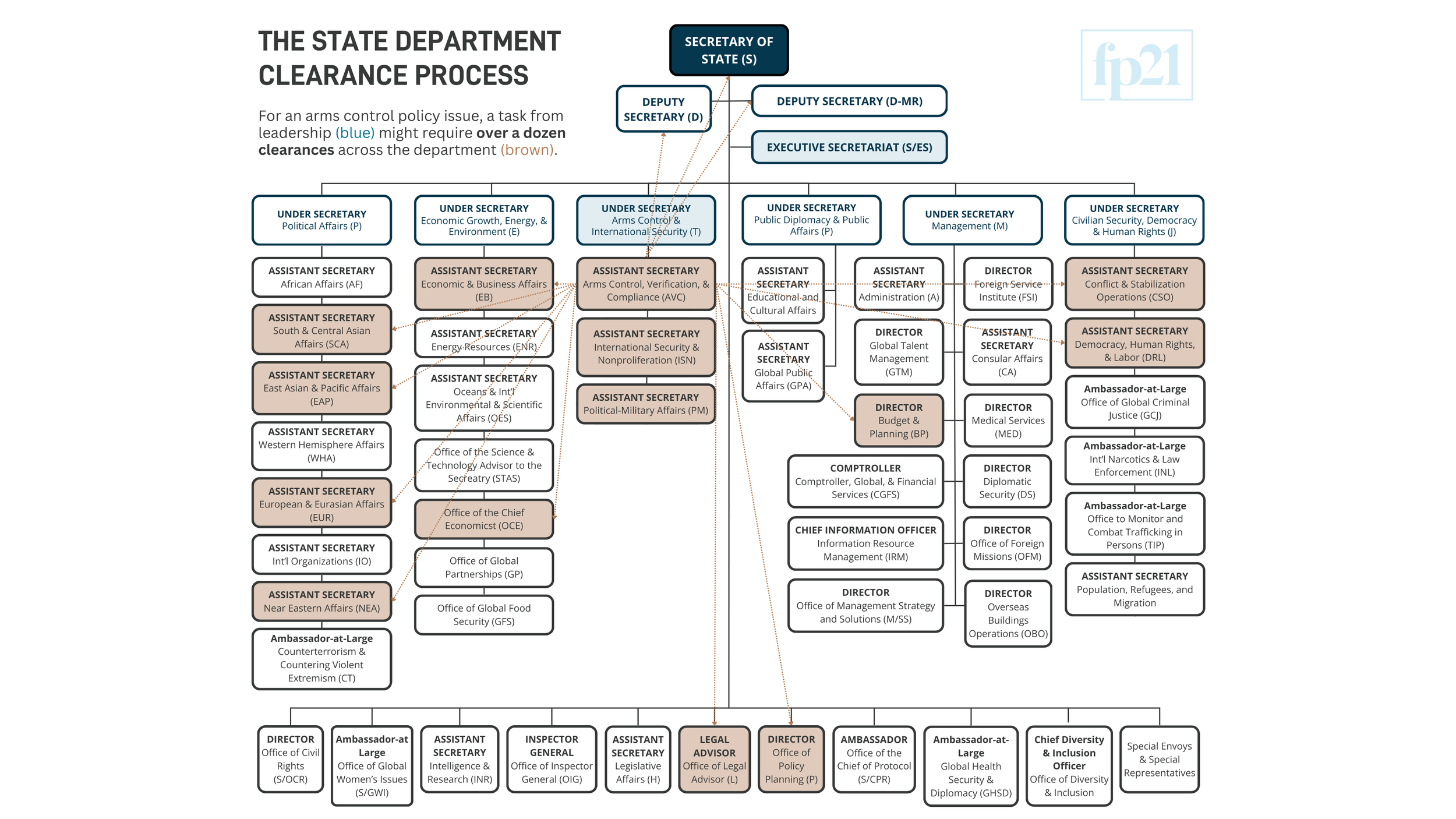
American Foreign Policy Decision-Making at the Agency Level: The Department of State as Exemplar?
Jeff Jager: To coordinate and collaborate on national security issues, the State Department’s clearance process ensures that all possible stakeholders have to sign off on anything that State does. The process has some advantages but many downsides such as prioritizing consensus at the expense of policy outcomes. Jeff explains and evaluate the clearance process and considers ways forward.
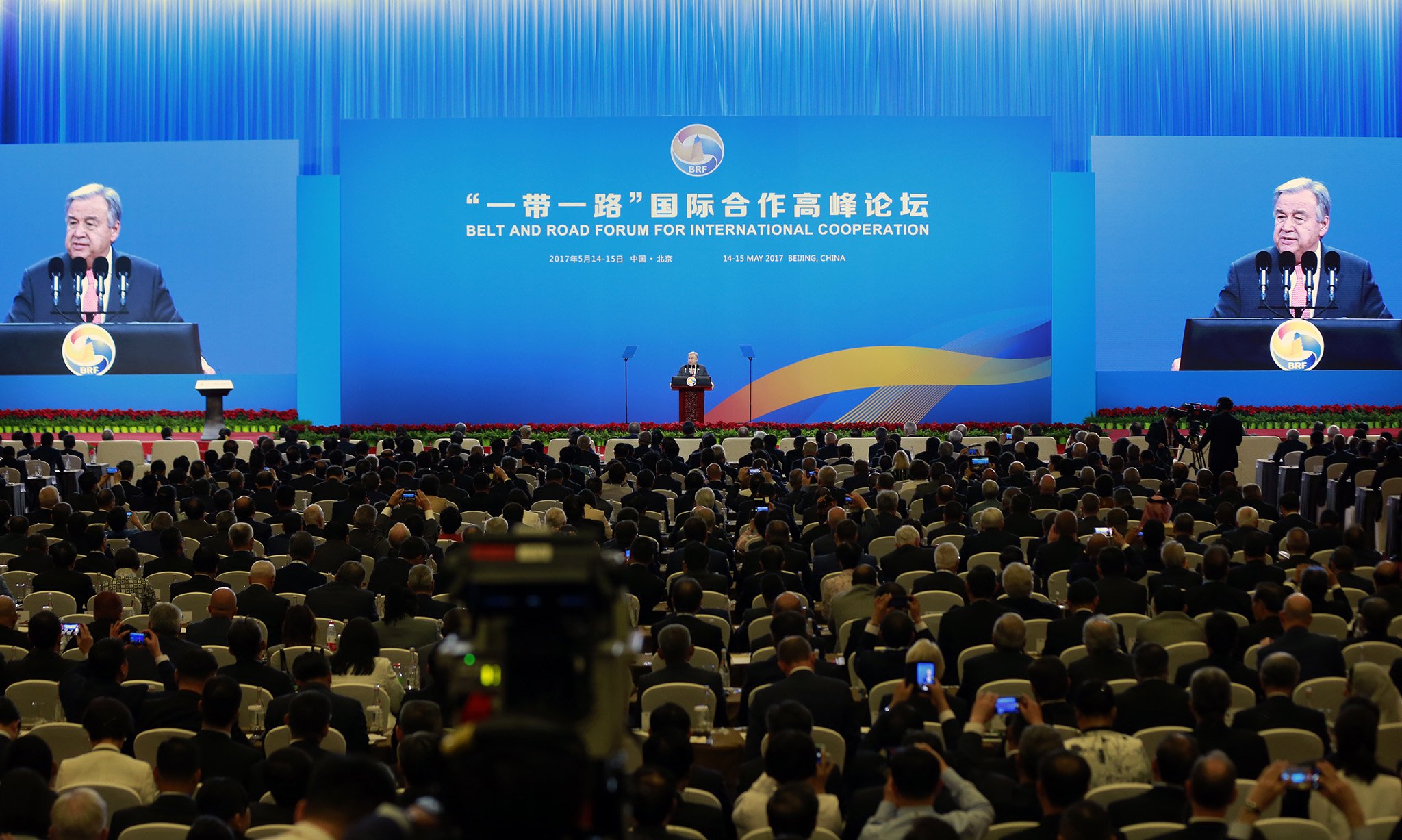
Identifying Influence in Geopolitics: China’s Belt and Road Initiative
Thomas Scherer: The Belt and Road Initiative (BRI) is China’s $1 trillion (and growing) infrastructure investment program, prompting large counter-investments from U.S. allies. But there’s a huge assumption baked into this financial arms race to exert influence: more investment causes more influence. Is that even true? New research suggests not.
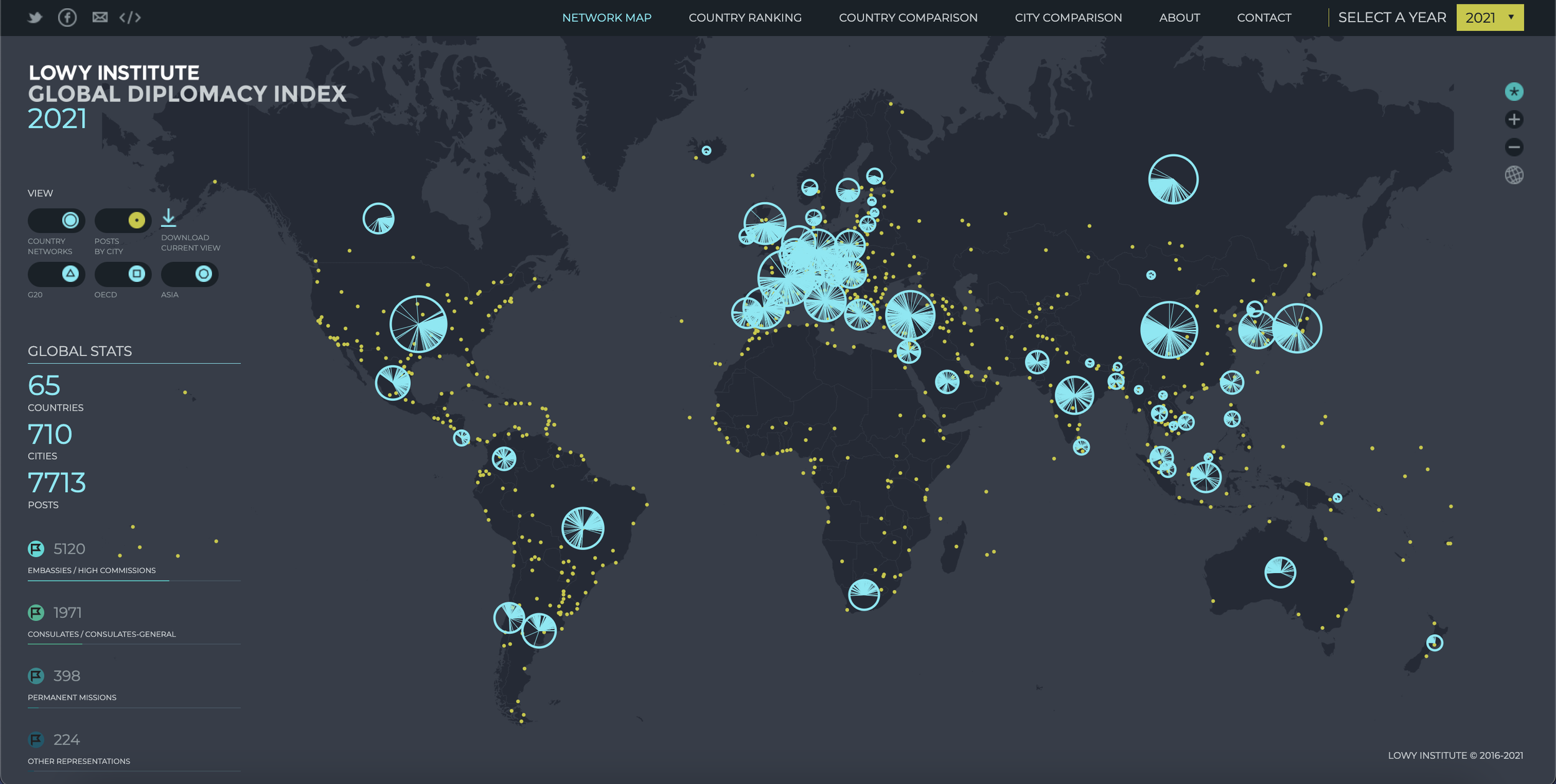
To Quantify Or Not to Quantify? Foreign Policy Needs Measurement
Toby Weed: Foreign policy establishment needs to follow the example set by other fields and incorporate quantitative measurement into its analytical and decision-making processes. By measuring the phenomena and concepts central to the work – using mathematical language to discuss them and accompanying that discussion with empirical observation – foreign policy practitioners can reduce their uncertainty and make better decisions.
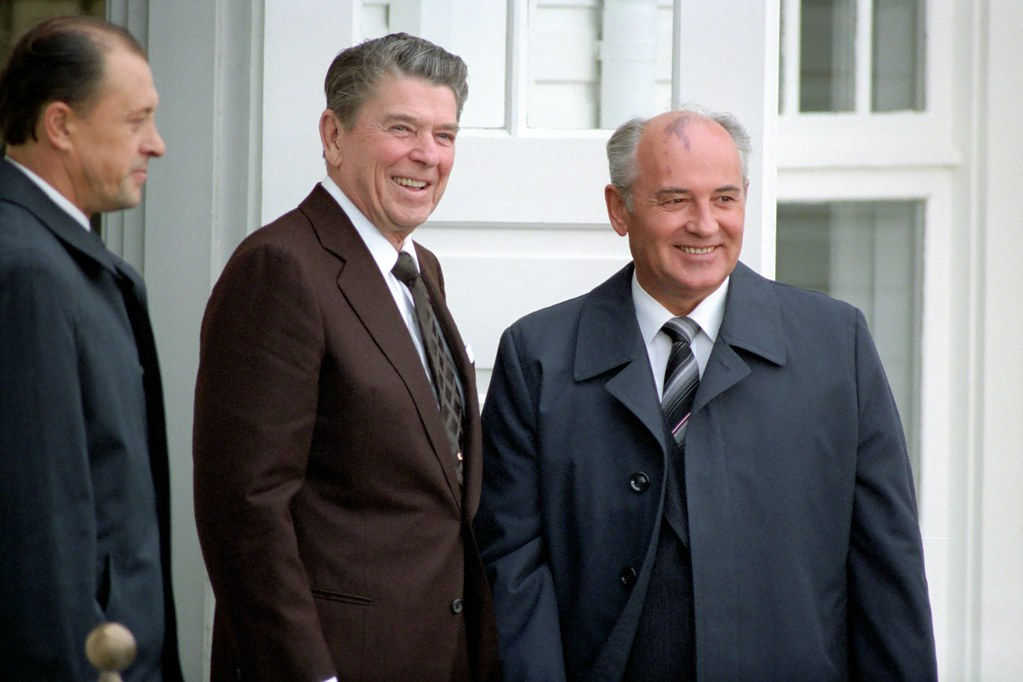
Does UNGA Matter? Examining the Research for Face-to-Face Diplomacy
Sanjana Patel: Is face-to-face diplomacy merely a symbolic practice, or does it hold unique value to meaningful shape international affairs? This article surveys evidence on the value of face-to-face diplomacy across a range of disciplines.

Teaching Data-Driven Decision-Making
Dan Spokojny: Last week Dan finished teaching a course on “Data-Driven Decision-Making” for a White House-led initiative called the U.S.-ASEAN Institute for Rising Leaders at the Johns Hopkins School of Advanced International Studies. The top-line argument for the course was to use the best available evidence to make the best possible decisions.

Evaluating Policy Success and Failure in Foreign Policy: A Better Approach
Thomas Scherer: When is a foreign policy a success, and when is it a failure? Most commentators fail to specify criteria or offer good evidence to support their claims. As with any scientific endeavor, clear standards of success are essential to policy learning, innovation, and improvement. This article offers three rules to follow to improve our understanding of policy success.
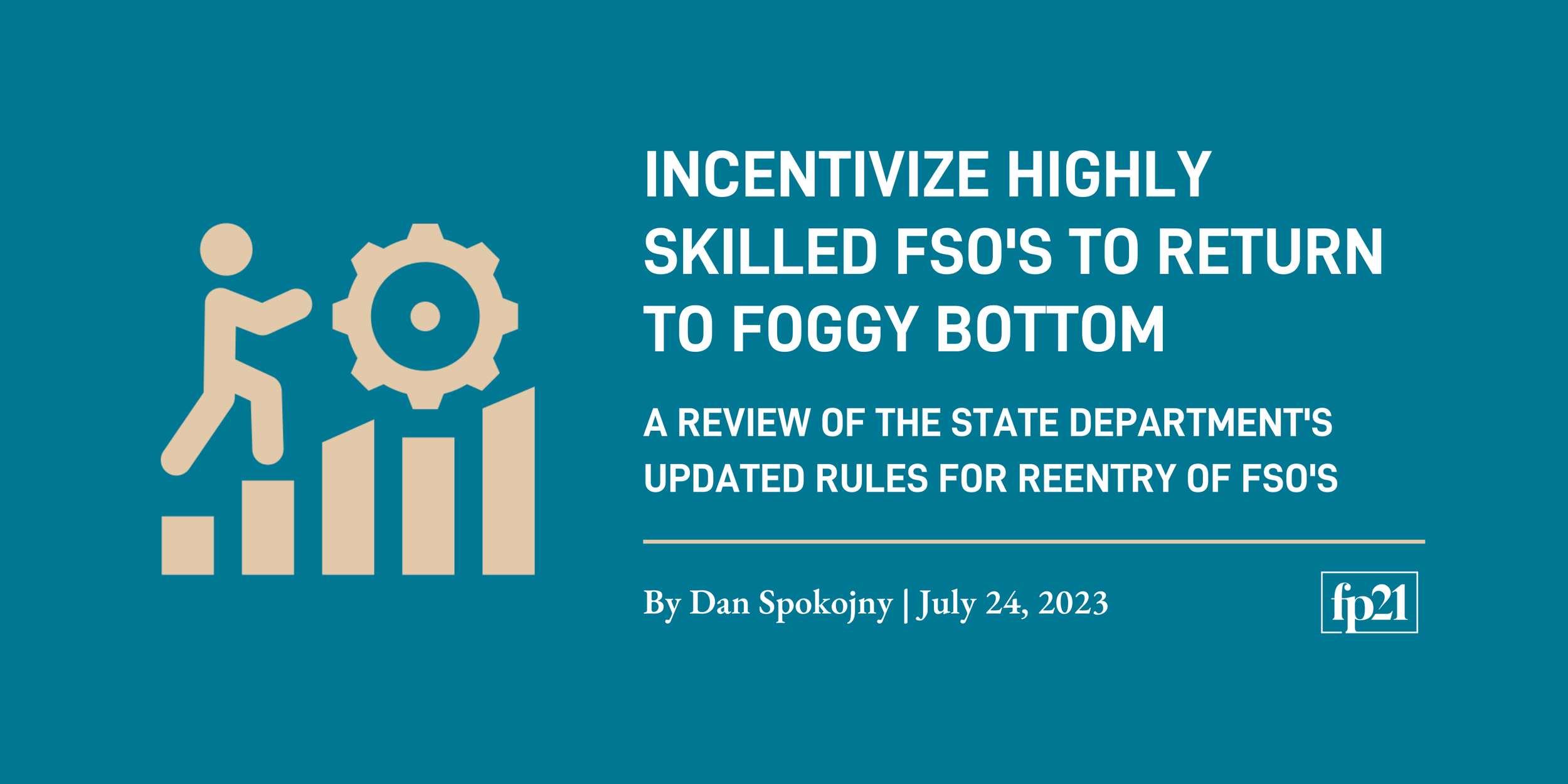
Incentivize Highly Skilled FSOs to Return to Foggy Bottom
Dan Spokojny: The State Department recently announced updated rules for the reentry of recently departed Foreign Service Officers. Many would jump at the chance to return to the Department if empowered to apply their new leadership, technical, and substantive skills. Greasing the skids for talented officers to return to Foggy Bottom would energize Secretary Blinken’s modernization agenda and set diplomacy on a better path into the future.
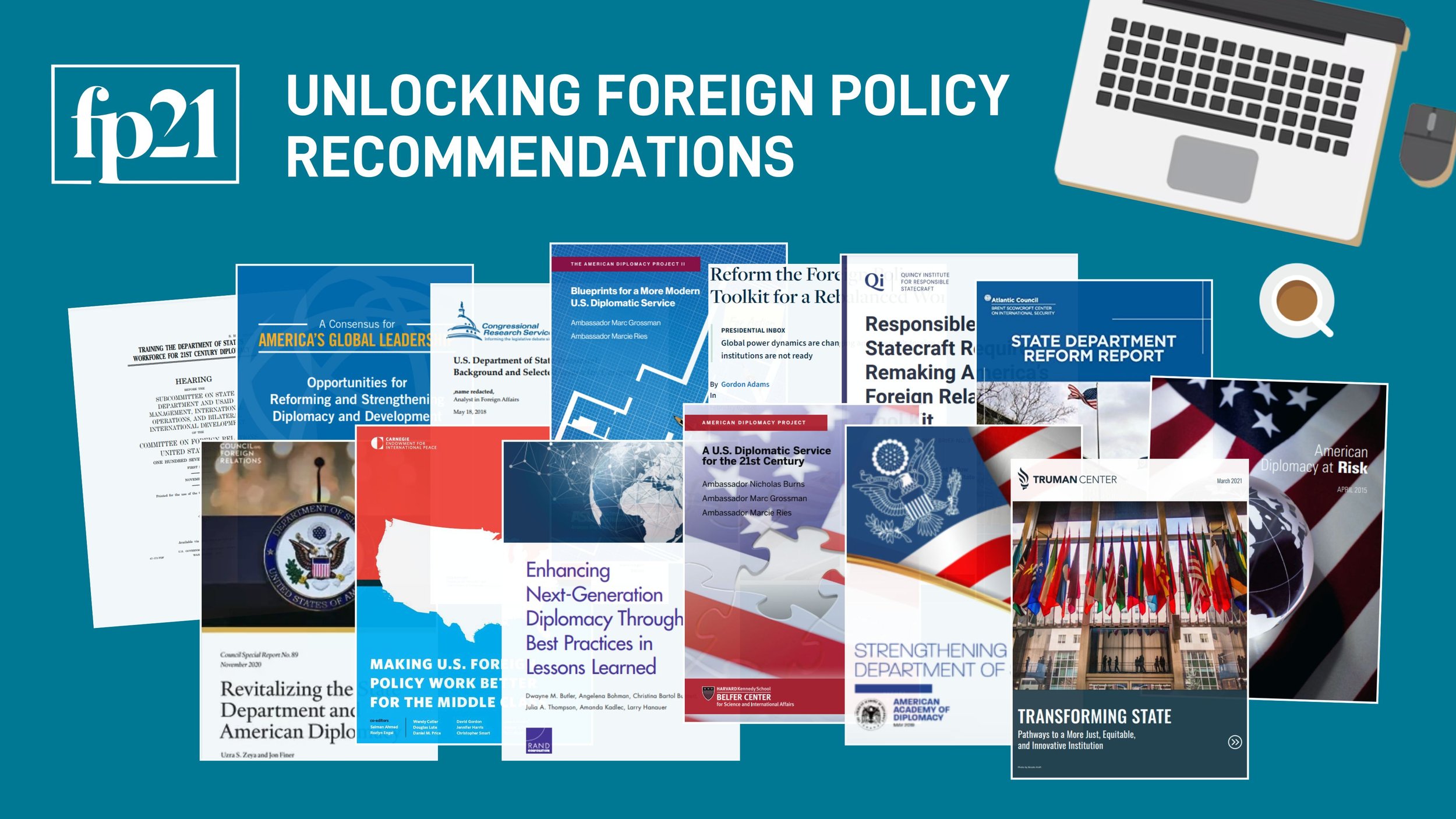
Unlocking Foreign Policy Reform Recommendations
Thomas Scherer, Toby Weed, & Marisa Jurczyk: There is an abundance of reports with recommendations for how to improve U.S. foreign policy. These recommendations help us understand how foreign policy has evolved and where it can go, but that information is hard to distill. We unlock this knowledge using computational social science techniques, with promising results.
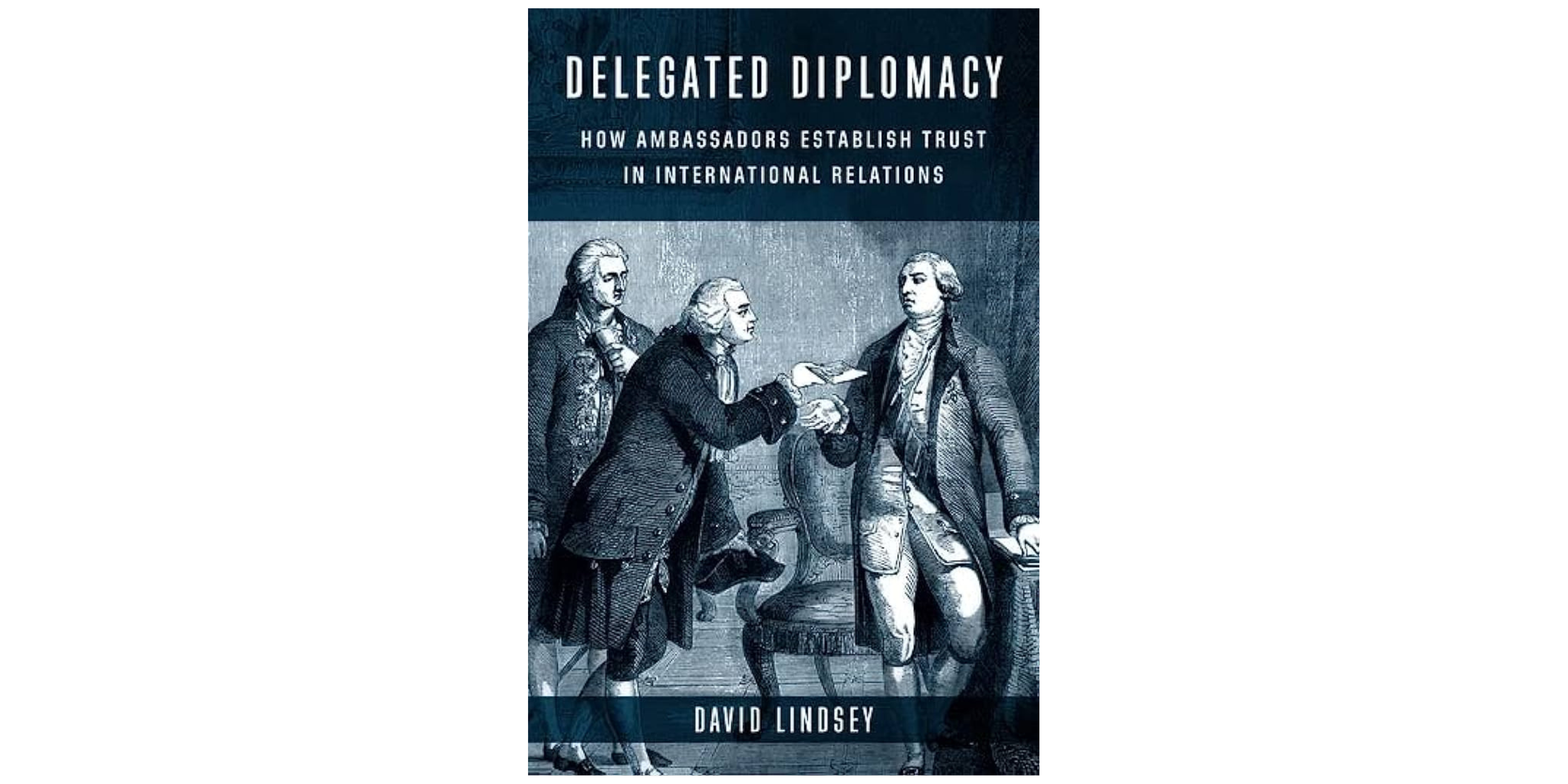
A Review of ‘Delegated Diplomacy: How Ambassadors Establish Trust in International Relations’
Dan Spokojny: When presidents and leaders can communicate directly and instantaneously with one another, why bother with diplomats? David Lindsey's new book offers a counterintuitive but compelling answer. This book review examines the compelling argument which demands that we take the role of diplomats more seriously.
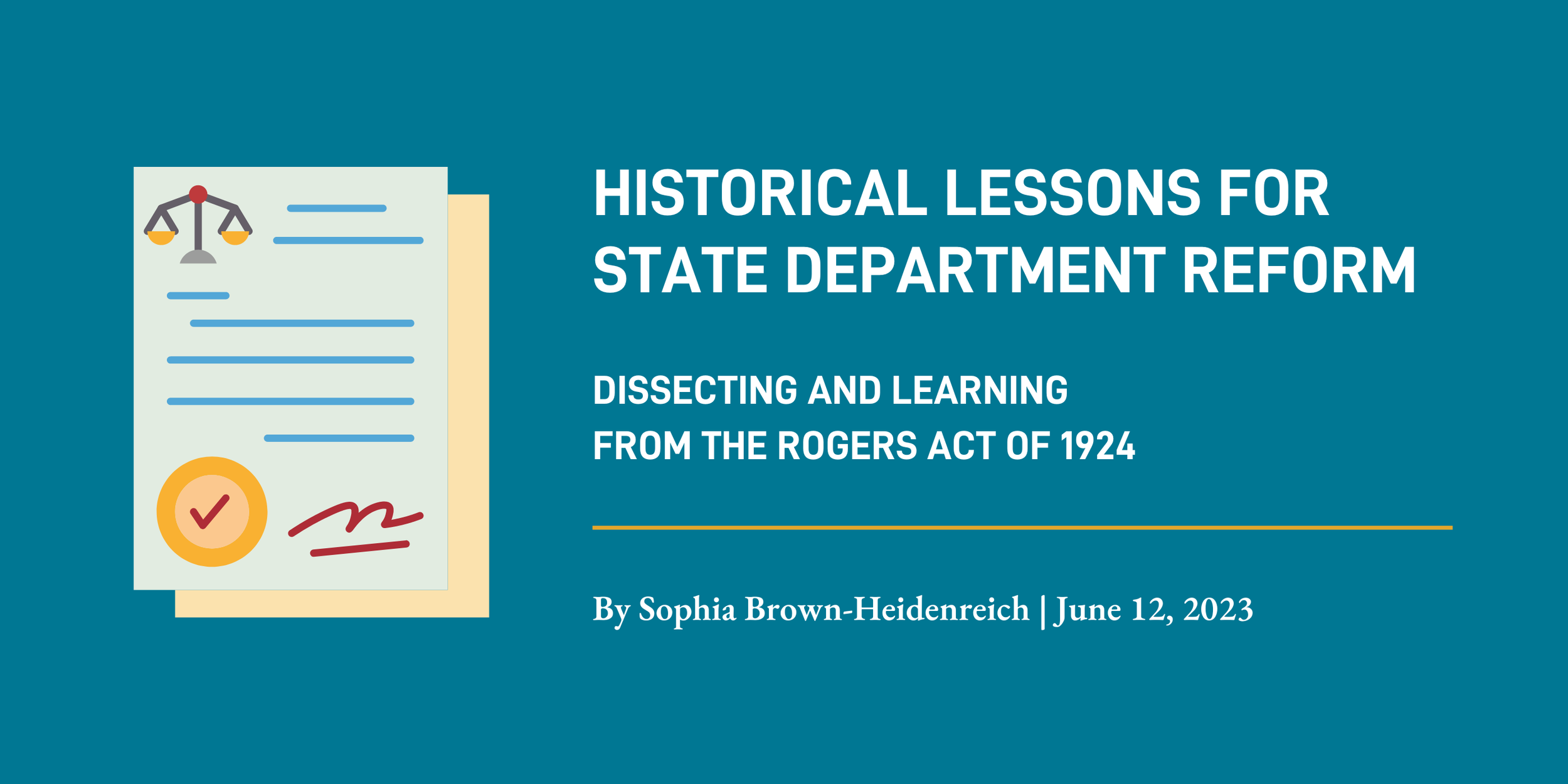
Historical Lessons for State Department Reform
Sophia Brown: The Rogers Act, which turns 100 next year, paved the way for the American diplomatic service to become the world’s most influential. Yet many of the problems that the Rogers Act sought to address a century ago have reawakened in today’s State Department: struggles with meritocracy, worrisome politicization, and a siloed personnel system. The history of the Rogers Act offers lessons for how today’s reformers may succeed or fail.

Bridging the Gap to Nowhere?
Dan Spokojny: “Bridging the gap” between academics and policymakers is vital for improving US foreign policy. Yet there are some critical design flaws in the bridge that need to be addressed. It's worrying when scholars must hide their methods and evidence when speaking with a policymaker. This risks placing outstanding scholarship on equal footing with opinions, lobbying, and misinformation.

ISA2023 Roundtable Summary: Can Foreign Policy Decision-Making Be Made More Scientific?
Thomas Scherer: Top State Department officials maintain that diplomacy “is not a science.” But experts convened by fp21at the 2023 International Studies Association Convention largely affirmed that foreign policy can and should be more scientific.

Forecasting in Policymaking: Beyond Cassandra
Dan Spokojny: All policy decisions are built on assumptions about the future. Yet many of the assumptions underlying policy pronouncements remain ambiguous and under-evaluated. Formalizing these assumptions can allow us to test the quality of our policy process and potentially improve its effectiveness. This post develops and evaluates four models for integrating forecasting methods into the policymaking process.
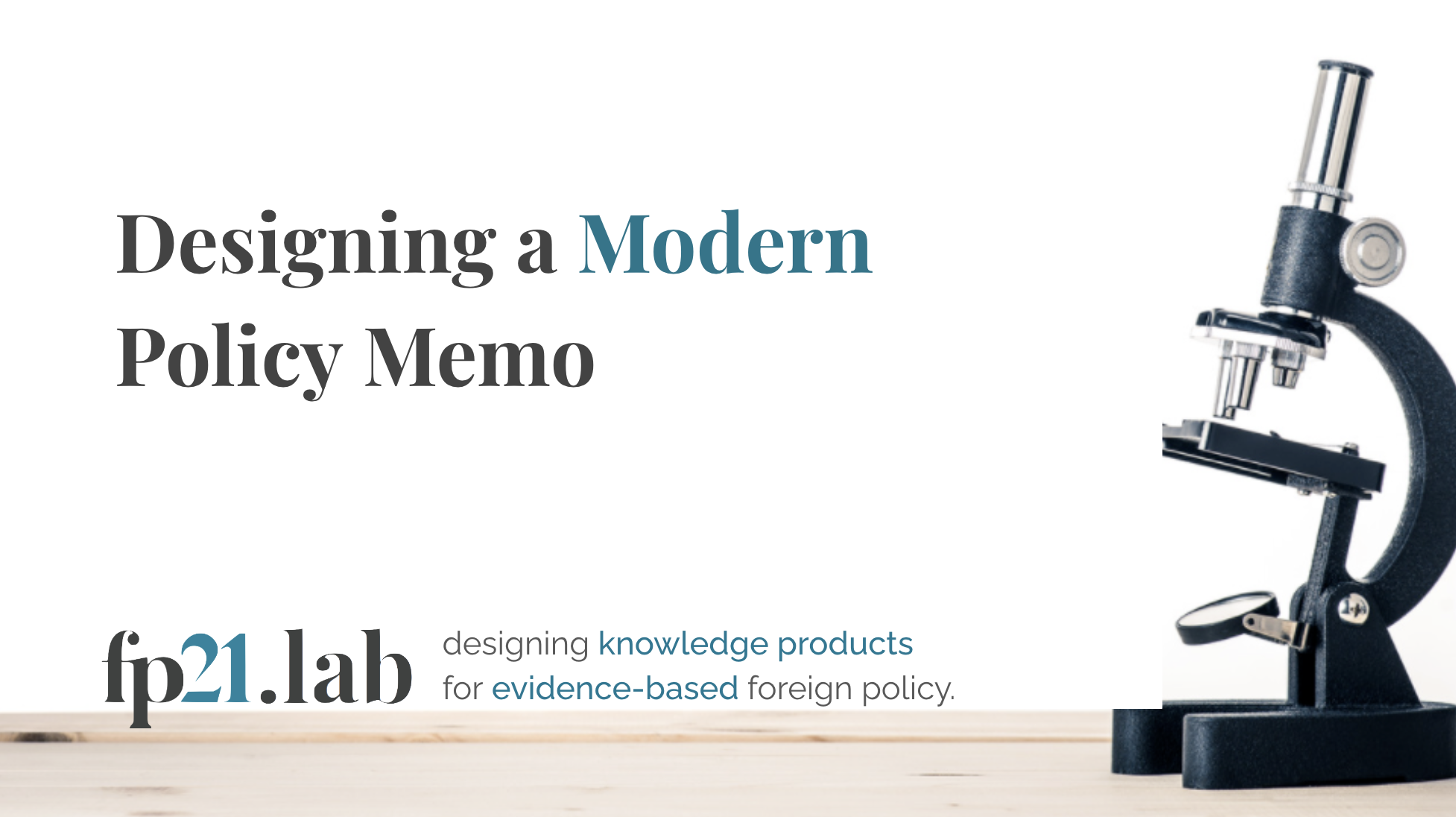
The Bayes Brief: Designing a Modern Policy Memo Process
Alex Bollfrass & Ellice Huang: Respected State Department observers complain that “clearance hell” weakens American diplomacy. The Bayes Brief re-imagines the humble policy memo and clearance process by capturing and summarizing evidence in a systematic format conducive for policy success in the information age. It is a simple intervention into the policy process that could positively impact the effectiveness of U.S. foreign policy.

Congress Orders Changes for State Department in New Authorization
Dan Spokojny: The new State Department Authorization recently passed by Congress and signed into law by President Biden includes some meaningful changes for diplomacy and international relations. The legislation advances new authorities and requirements across training, workforce issues, hiring and promotions, and internal security issues. Let’s take a closer look:

